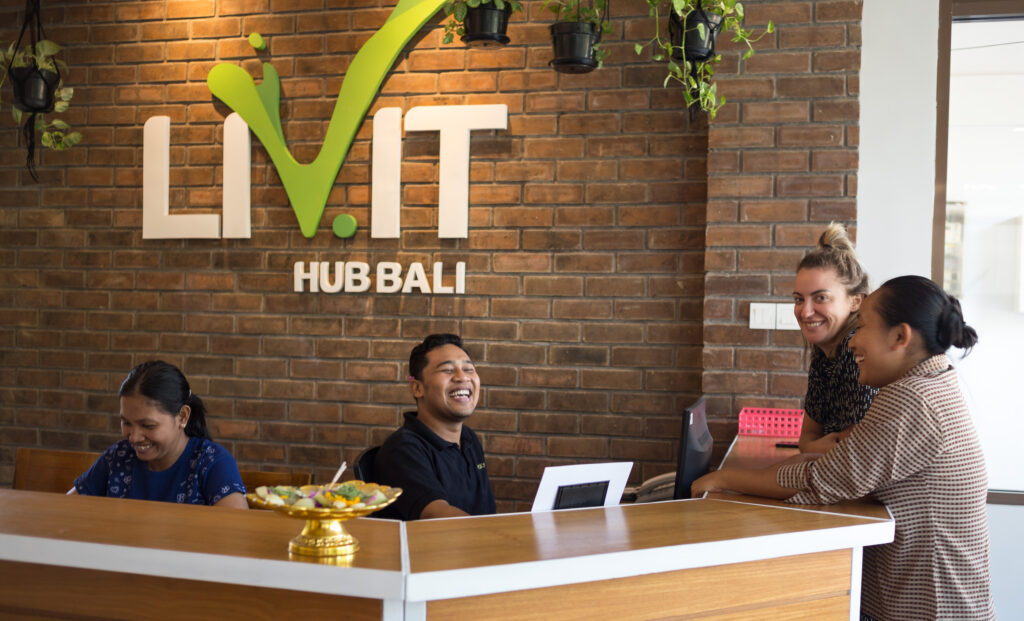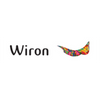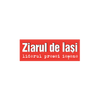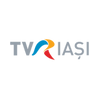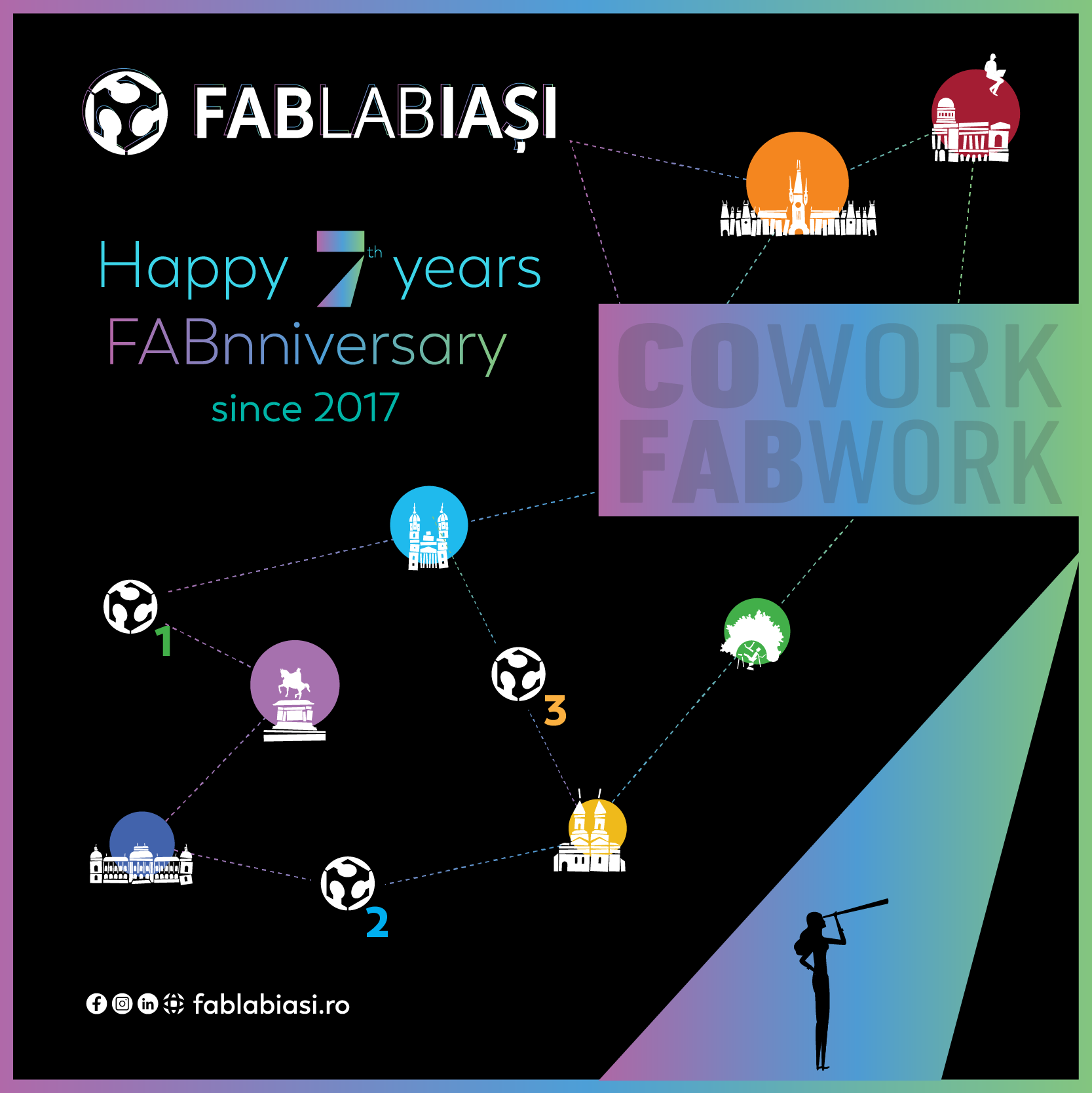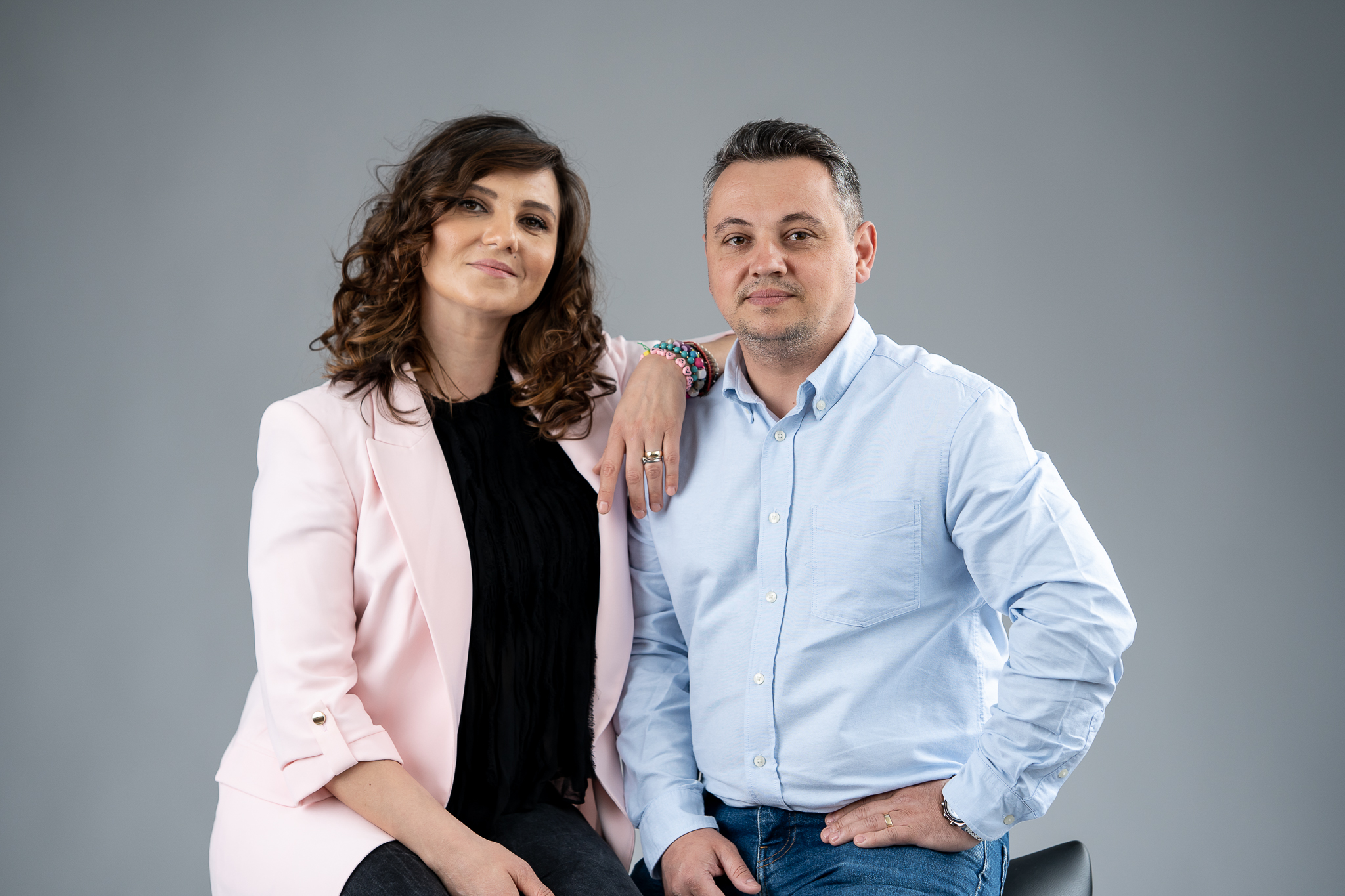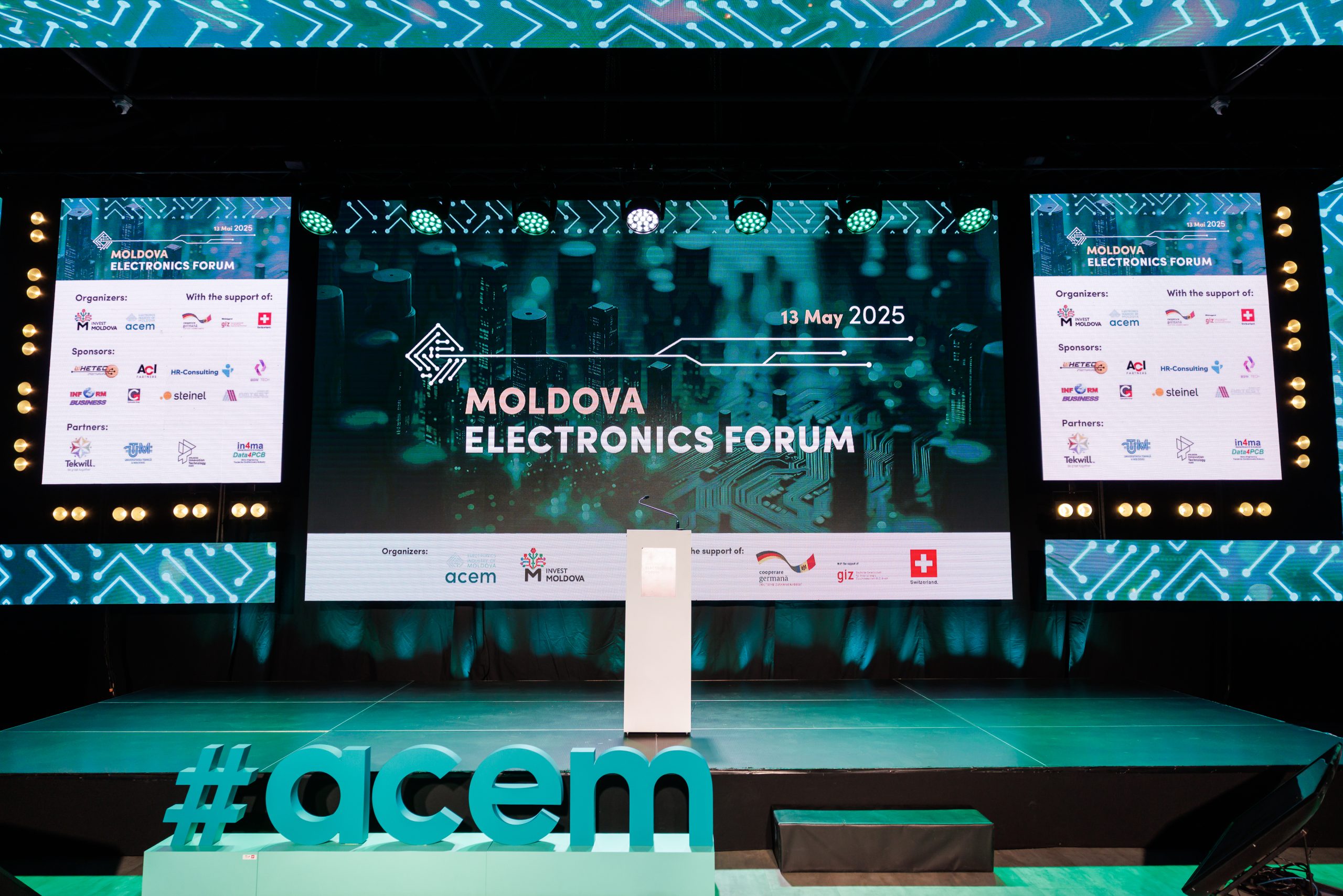Tell us a bit about yourself and your company.
My name is Lavinia Iosub, I’m originally from Romania (I actually lived a significant part of my life in Iasi, and love to spend a few weeks a year here still) and I currently run a company called Livit International. We are a digital and physical hub for entrepreneurs, startups and remote workers headquartered in Bali, Indonesia. In many ways, we are basically a support ecosystem and a service provider for those who want to build exciting tech/digital businesses and truly enjoy both work and life – which has become even more important since the pandemic. We’ve been building remote-first teams, projects and companies for 10+ years now (since before it was “cool” :D), we’ve learned a lot of do’s and dont’s and we’re happy to share.
So what services do you offer to those building tech teams and companies, and where?
We offer a whole suite of services.
In Bali, we have:
- workation events and retreats for entrepreneurs and teams via Project Getaway
- coworking, shared offices & events at Livit Hub
- business support & compliance services in Bali (HR, finance, legal, logistics, admin) – where we help entrepreneurs navigate an environment that is both offering in opportunities as well as challenges
- remote work education for Indonesians who want to learn to work online via the Remote Skills Academy – trying to close the gap between those privileged to be able to earn money remotely and those who are serving them working low paid jobs
Internationally (as many of our projects have been digital or remote-first for a long time), we help with:
- HR Business Partner services
- tech/non-tech recruitment
- training & workshops on entrepreneurship & building high-performance, engaged, scalable, remote-capable teams
Besides Bali, we are also incorporated in Estonia via the e-residency program and have partnerships in Switzerland and Denmark. Over this past decade, we’ve worked with over 1000+ entrepreneurs, startup enthusiasts, remote workers and digital nomads and hopefully inspired and enabled them, in various ways, to either start their companies or bring them to a new level. Most of our clients are from Europe and Asia, but our client portfolio at any given time can span anything between 5 and 20+ countries at a given time.
How did you move to Bali?
It’s a long story but I’ll try to keep in short. I was running a different business in Azerbaijan, and my current business partner was already splitting his time between Bali and Europe. This was the early-mid-2010s, before Bali became the digital nomad hotspot it is now. A “digital contact” (a person I was connected to but have never met in person), an AIESEC alumna (I am one, too), introduced the two of us. He was looking for help on a project he was running. So I moved to Bali for “6 months”. And it’s been over 7 years now.
Can you tell me more about the Remote Skills Academy?
The Remote Skills Academy was born out of my frustration with the huge disconnect between the “Instagrammable” digital nomad side of Bali and the reality for the local population. Over the last 5-7 years, Bali has become a huge hot-spot for digital nomads, remote workers, freelancers and location independent entrepreneurs, who take advantage of all these new ways of working and live as they please thousands of kilometers away from their employees, partners, clients or providers. So I wanted to address the very real gap between those privileged to have the education/ability to work online and take advantage of global opportunities, and those who are not. During the pandemic, in many places in the world, this gap made the difference between still having a job and being able to feed your family – or not. The Academy started small in 2020 and it grew a lot. It now has 500+ alumni, many changed lives and heart-warming stories, a fantastic team and new ideas and connections popping up like mushrooms (we’re doing Web 3.0 skills training now!).
What is a team workation and what kind of teams come for those in Bali?
A team workation is usually a 1-4 week-long event where a team gets together to get a bunch of work done, as well as spend time with each other and bond, explore a beautiful place and make some great memories. Before the pandemic, it was more niche – it was mostly remote teams who were very productive working remotely for most of the year (developpers can get a lot done on their own, with no office distractions!) but were looking to boost collaboration and human connection within the teams a couple of times a year. That works very well and we’ve seen teams spanning at least 15 different countries enjoying these types of events with us in Bali. These it’s all kinds of teams, as most companies are now at least hybrid, at least temporarily. A curated get-away, get-together event like that really boosts team morale and productivity for quite a few months. You also get a lot done, as our team takes care of everything, from work space to meals, excursions, transportation and even massages 🙂 Come try it out once!
Do you have any predictions for the future of work, business and life, as we get back to ‘normal’ – will there be permanent changes?
There will definitely be permanent changes, and I like to think that the pandemic allowed all of us an opportunity to reconsider and reimagine how we structure our lives and work. What is personal has become professional and the other way around, the lines between the „compartments” of our lives got blurred and all that has prompted everyone to look at things from a slightly different angle.
So I believe, amongst other things:
- We’ll see more and more „rich slowmads”. People who make large salaries at global (tech) firms and can now work remotely, but who move slower than the typical nomads and need to have premium work environments to be productive.
- Coworking and shared offices will boom. More and more companies will opt for hybrid setups and shared offices, and give up their expensive leases.
- Remote and hybrid setups will become the norm for many. That means employers can now take advantage of a global talent pool, while employees will no longer be disadvantaged by distance.
- We’ll probably continue to see a migration from large or mega cities to smaller ones, a descentralization if you will
- Health and wellbeing will remain a strong focus post-pandemic, especially as we shift into the phase of closely analysing and addressing the lessons we’ve learned from Covid-19. Telemedical services (e.g. therapy) will continue to advance rapidly, as more people recognise the importance of mental health for professional productivity and personal growth.
Do you think the future is remote or at the office?
My answer is neither. I see both sides of this argument. I’ve worked remotely in various capacities for over 10 years now. My team, my partner, and I have built quite a few things (some wildly successful) remote-first. A fun fact is that my partner, while having met in Bali as I mentioned, never actually lived on the same continent at the same time. On the other hand, at Livit we also run a physical coworking/shared-office hub, which is centered around human face-to-face interaction. So my answer is more nuanced: the future is choice and agency. People are looking to work from where they’re most productive and inspired. That might be their house, the office, a shared office/coworking space or a mix of it all withing the same working week. So if you want, build a great office and motivate people to come to it as often as they’d like. Or go fully remote which opens up a whole global talent pool, no longer limited to the 15km radius around you. But more important than location is nurturing an engaging, meaningful culture that goes at least 3 layers deeper than forced ice-breakers and ping-pong tables. Do that and you’ll have a great business that thrives.
I hear you have been winning a lot of distinctions and awards lately, what are they?
This June, became a top 3 Best Workplace in Indonesia (which is a large country with over 270 million people and 25-30 million companies). In May, we won the Flexible Workplace Award at Running Remote in Montreal for “Outstanding Employee Wellbeing”. And a few weeks before that, we got listed as a top 100 company to “Escape To” from amongst 13,000 nominations. It’s been an interesting few months, as external recognition, especially at an international level, is always flattering. But the real prize about being a great team is getting to work with that team every day.
Website: www.liv.it Email: lavinia@liv.it
